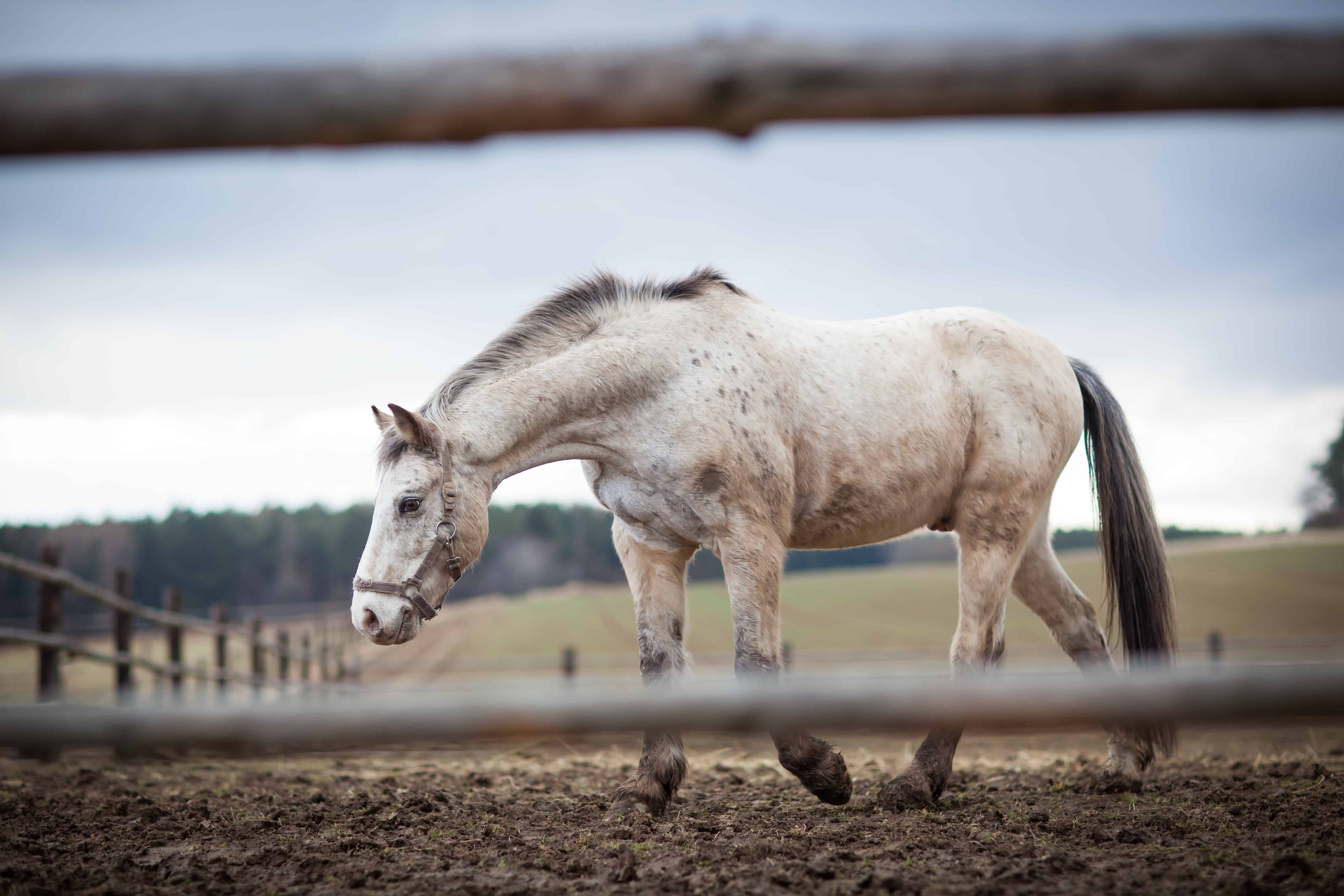Common Senior Horse Behavior Problems
- Topics: Article, Behavior, Lameness, Older Horse Care Concerns

—Ashley, via e-mail
A.Probably the most common type of case and questions involving senior horse behavior concerns the horse that is reluctant to lie down, or is not lying down, to rest. After about two to three weeks without even a brief session of recumbent rest with REM (rapid eye movement) sleep, most horses begin to appear sleep-deprived.
They tend to repeatedly nod down to the floor, wake up upon buckling, and might partially or fully collapse to the floor during standing rest. This can occur in younger horses as well, but more often than not the cases we see are in older animals. This is probably because of musculoskeletal conditions common to older horses that might make it more difficult to lie down and get up again. These horses usually are referred to our program because of observed collapse when standing at rest or on the cross-ties, or due to injuries consistent with collapse
Create a free account with TheHorse.com to view this content.
TheHorse.com is home to thousands of free articles about horse health care. In order to access some of our exclusive free content, you must be signed into TheHorse.com.
Start your free account today!
Already have an account?
and continue reading.
Written by:
Sue McDonnell, PhD, Certified AAB
Related Articles
Stay on top of the most recent Horse Health news with















